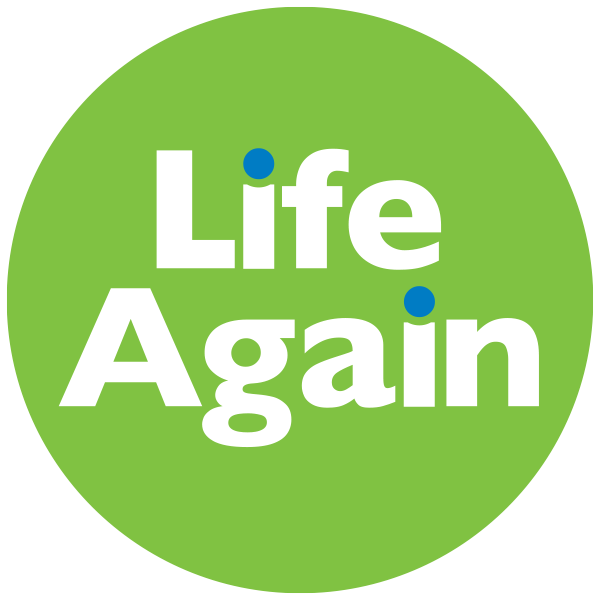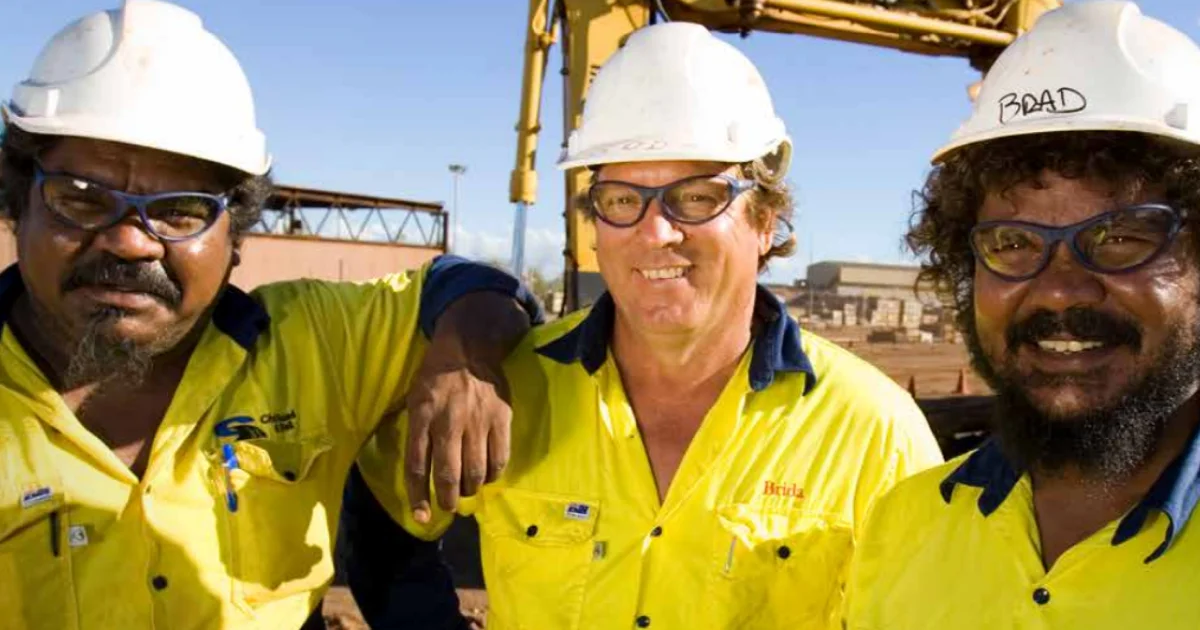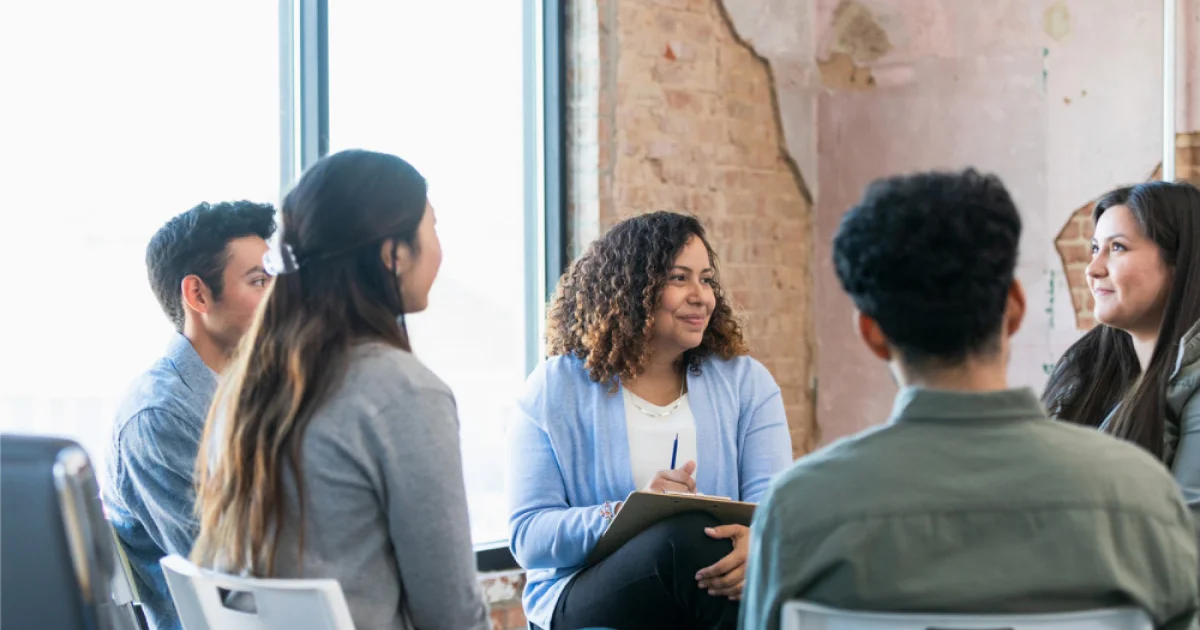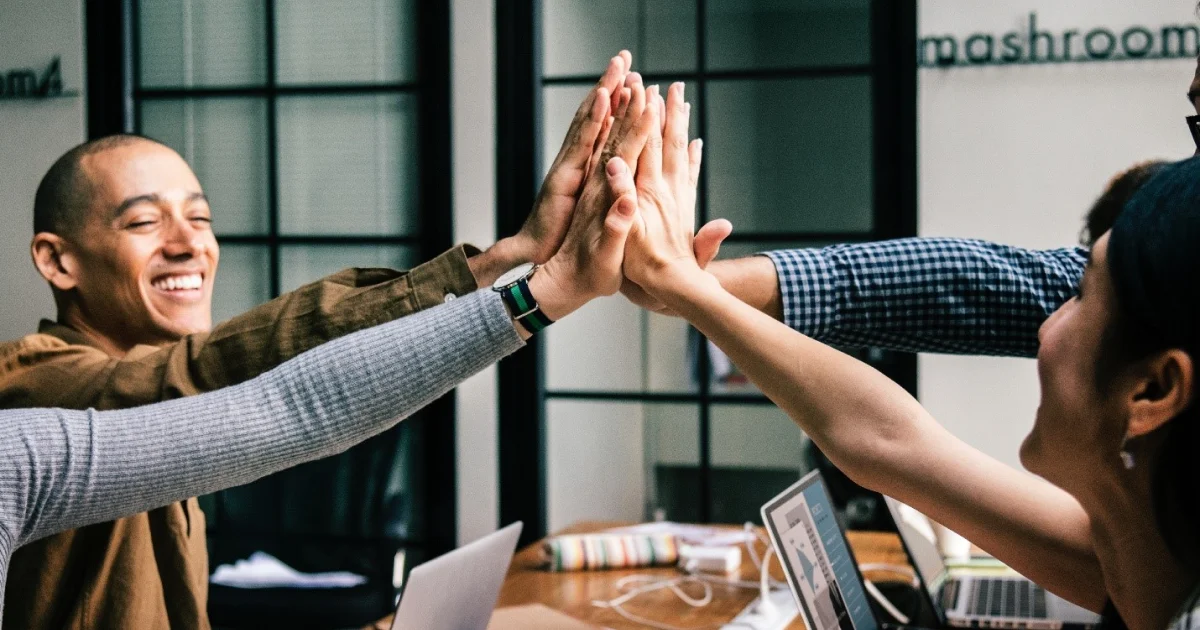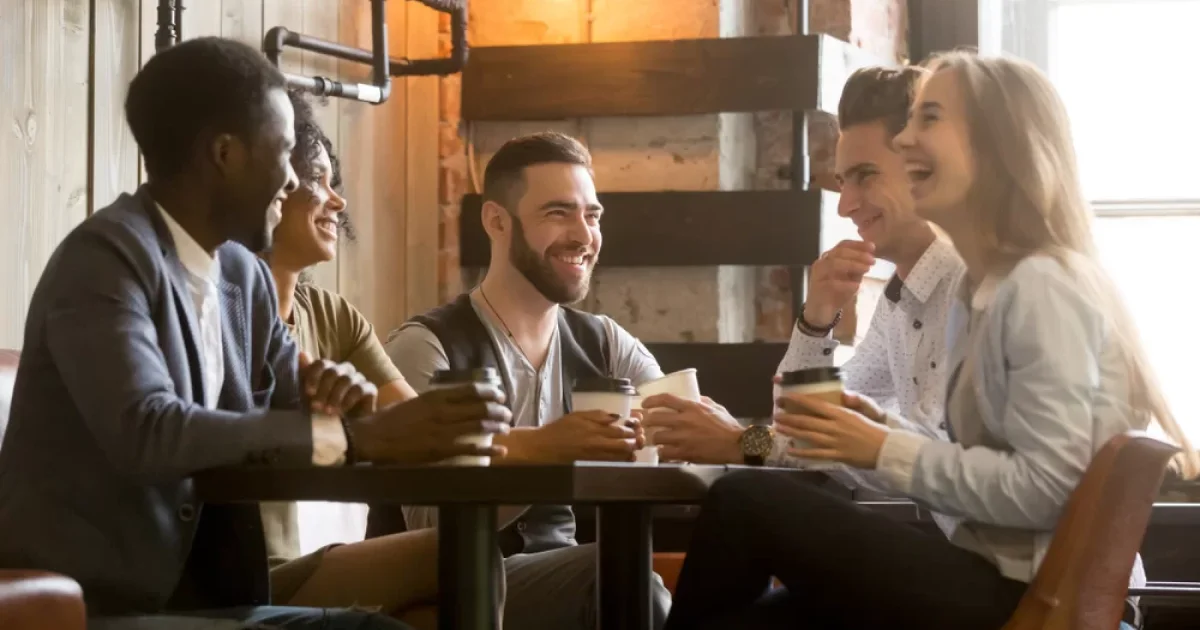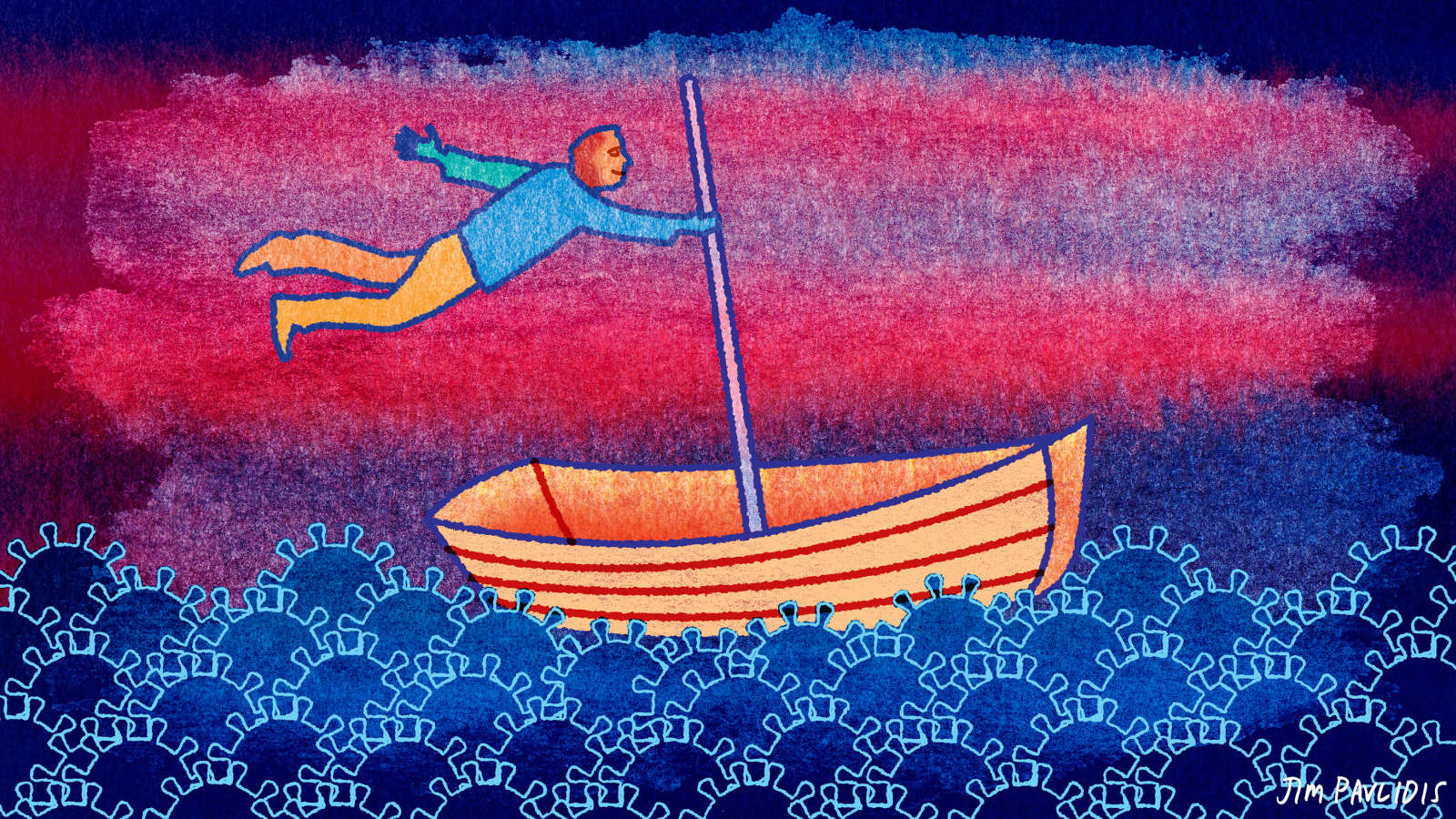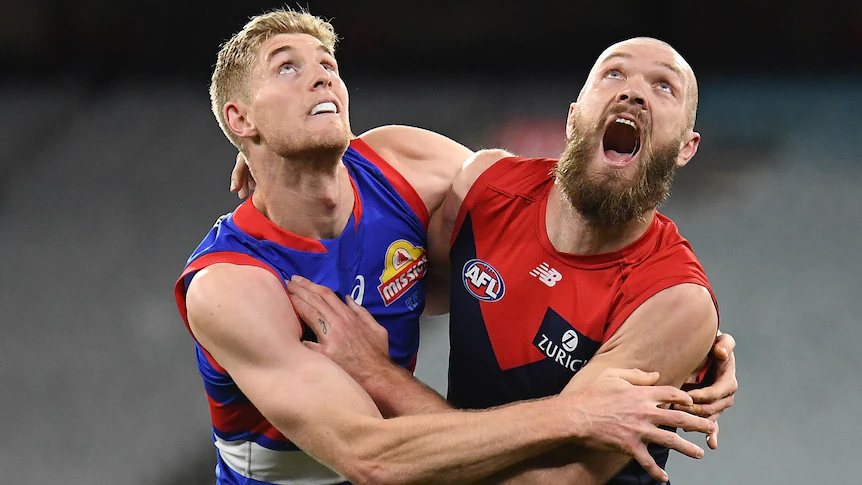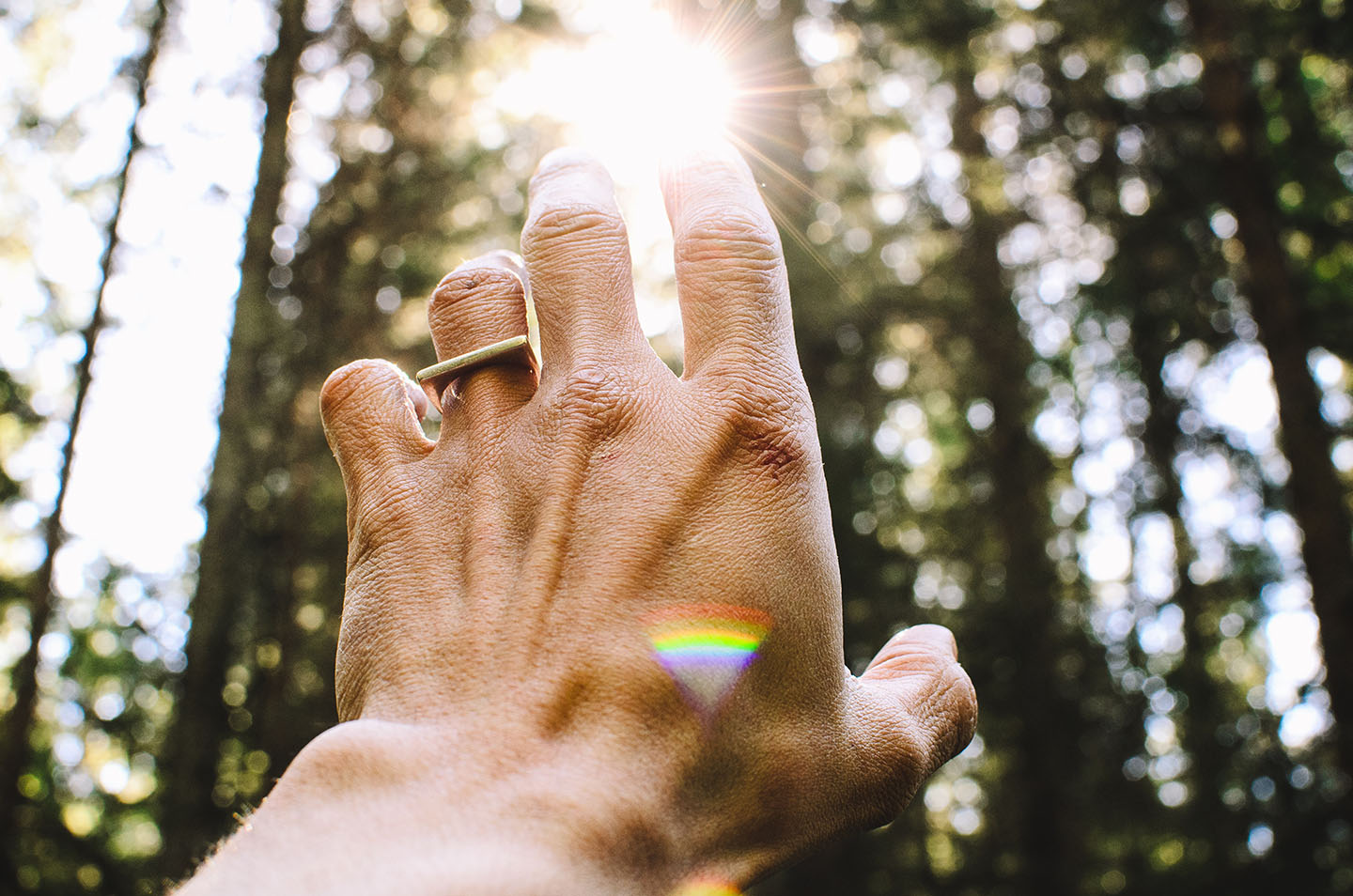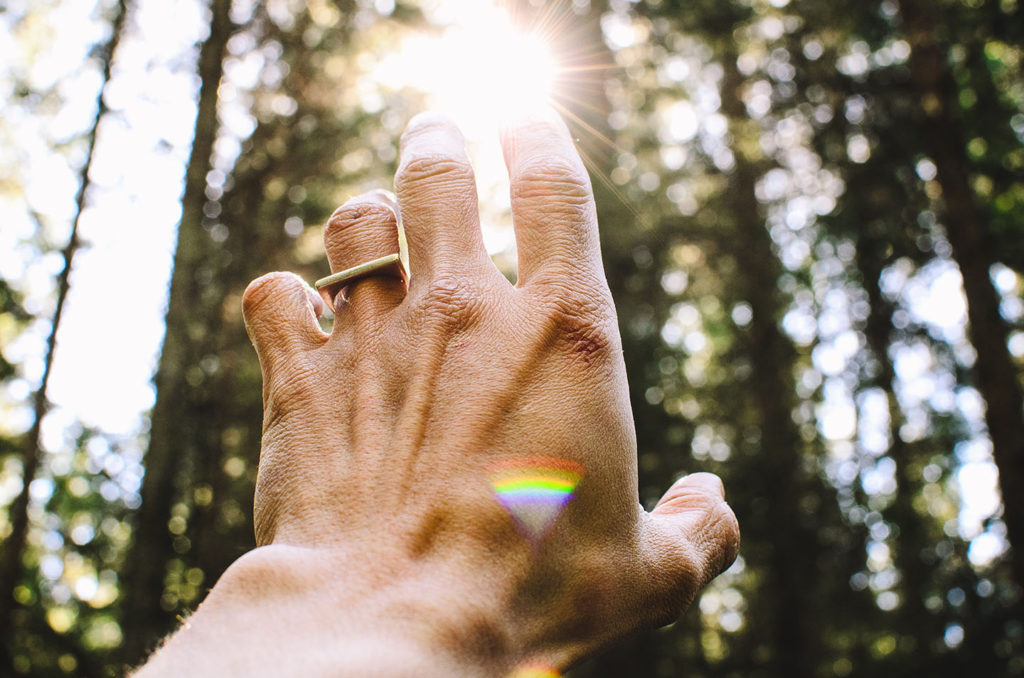Understanding How Aboriginal Culture Can Benefit Workplace Mental Health in Australia
Understanding How Aboriginal Culture Can Benefit Workplace Mental Health in Australia
Mental health struggles are a real and growing concern for many employees in the workplace. According to a recent study, 50% of the employees experience a decrease in their mental health due to work-related stress. This calls for a need to incorporate strategies that can promote healthy mental well-being in the workplace. One such way is by embracing Aboriginal culture, which is grounded in ancient practices known to promote emotional, physical, and spiritual healing. In this blog post, we’ll dive into how Aboriginal culture can help improve workplace mental health.
1. Connection to Nature One of the main teachings of the Aboriginal culture is the deep connection they have with nature.
According to their beliefs, everything in the environment is interconnected, and its balance must be maintained. This perspective can help employees find a deeper sense of connection and meaning in their work environment. Encouraging a connection to nature can encourage a sense of calm and relaxation, and allow people to approach their days better equipped to handle workplace stress.
2. Embrace Storytelling The Aboriginal culture places a strong emphasis on oral storytelling.
These stories are not only an exciting way to share knowledge but are also rich with valuable teachings and historical context. Encouraging storytelling in the workplace can inspire colleagues to share their stories. This will allow them to open up and build stronger relationships with their co-workers, promoting a sense of belonging and mental well-being.
3. Personal Reflection The Aboriginal culture teaches the importance of personal reflection and connecting with oneself.
Through self-reflection, individuals can gain deeper insights into their emotions, thoughts, and behaviours. Encouraging employees to take quiet moments to listen to their own feelings and reactions will help them develop a deeper sense of self-awareness and better self-regulation.
4. Interpersonal Relationships Aboriginal culture has always emphasized the importance of community and relationships.
The culture places high value on treating others with respect and dignity, and recognizing the interconnectedness of all living beings. Incorporating these teachings into the workplace helps develop a sense of community and teamwork among colleagues. Encouraging collaboration and valuing the input of all staff regardless of their hierarchical positions builds a sense of trust and mutual respect.
It’s evident that the teachings and practices of the Aboriginal culture bring a lot of benefits to the mental health of employees in the workplace. From a deep connection to nature, to embracing storytelling, self-reflection, health practices, and interpersonal relationships, the Aboriginal culture provides excellent tools for managing stress and promoting mental well-being. As human resources, executives, and people and culture leads, we can all learn a lot from these ancient teachings and take steps to implement them at our workplaces to help promote healthy, thriving communities. By doing this, we can all contribute to a more positive and sustainable work environment.
The Power of Connection, Storytelling, and Giving Back in Workplace Mental Health in Australia
The Power of Connection, Storytelling, and Giving Back in Workplace Mental Health in Australia
Creating a positive and thriving workplace is crucial to the success of any company. A happy workforce is a productive workforce, but what exactly makes employees feel happy and fulfilled in their jobs? Understanding the benefits of connection, storytelling, and giving back can help improve workplace mental health and employee wellbeing. In this blog post, we will delve into how these factors can contribute to a more positive work environment and, as a result, improve employee wellbeing.
Connection is one of the most vital components in creating a healthy and happy work environment. Feeling a sense of belonging not only reduces stress but also provides a supportive and collaborative atmosphere. When individuals are connected to their colleagues, they are more likely to feel comfortable sharing their thoughts and receiving feedback. Encouraging connection throughout your workplace can be achieved through team-building activities, open communication channels, and facilitating a safe environment for discussions. Companies might go as far as organising activities outside of work that can foster connections between employees. Anything from group fitness challenges to cultural outings can strengthen workplace connections, ultimately improving mental health and employee satisfaction.
Storytelling is another underrated tool to promote workplace mental health. Sharing personal experiences and anecdotes can help build empathy and deepen connection. When employees feel that they can be vulnerable and share their struggles, it opens up a space for others to do the same. Story sharing can occur through simple one-on-one conversations or formalised programs like workshops or storytelling events. Additionally, it is essential to archive and document these stories to acknowledge employees’ experiences, acknowledging accomplishments, recognising struggles, and working as a team to learn from shared experiences.

Giving back is the third component to promote positive workplace mental health. Giving back does not only mean monetary contributions, but it encompasses various initiatives that impact the community or work environment, including supporting charitable causes, volunteering, or championing environmentally responsible initiatives. When employees learn new skills while volunteering, for instance, they feel more energised and fulfilled, thus boosting their morale and productivity. Company philanthropy builds a sense of community and reflects the values of the organisation. Contributing to charitable causes that align with employee beliefs helps them to feel recognised and valued, and increases their retention rates.
Positive workplace mental health in Australia is key to the success and growth of an organisation. Connection, storytelling, and giving back are three essential components that will improve employee well-being and satisfaction. Given alternatives to activities that build both within and outside of work connection, storytelling events or sharing programs, and employee-driven community giving programs, employees will feel more connected, recognised, and valued. They increase retention, improve interactions, reduce stress while boosting productivity. By promoting connection and a sense of belonging, encouraging storytelling, and supporting giving back initiatives, companies can provide a positive and empowering work environment that allows employees to thrive and achieve their full potential
The Remarkable Benefits of Infusing Aboriginal Culture into the Workplace in Australia
The Remarkable Benefits of Infusing Aboriginal Culture into the Workplace in Australia
In today’s fast-paced work environment, more and more people are feeling overwhelmed, stressed, and emotionally drained. The World Health Organization has deemed workplace stress as the "health epidemic of the 21st century". The good news is that by incorporating Indigenous values in workplaces, some organisations have found new and meaningful solutions to workplace mental health. Aboriginal culture and values have a vital role to play in supporting positive mental health outcomes in the workplace. In this blog, we’ll take a closer look at how Aboriginal culture in the workplace could benefit everyone, not just employees with Aboriginal heritage.
1. Built on a Strong Sense of Community
Aboriginal cultures have long-standing traditions that uphold the value of community. Their traditional knowledge is passed down verbally from generation to generation through storytelling. The idea is that community members learn from each other’s experiences, and the collective wisdom is valued. This emphasis on community building is also beneficial in the workplace. Celebrating cultural events together, team-building exercises, and group decision-making activities can all help create a supportive and collaborative work environment.
2. Delivered with Compassion
Indigenous cultures have shown their proficiency in healthcare and the natural healing of the mind, body, and spirit. They often place a much greater emphasis on preventative healthcare measures compared to Western culture. When it comes to mental health, prevention is the key. Having a preventative approach that is infused with Aboriginal cultural traditions may significantly reduce the high number of workplace stresses. Aboriginal leaders could be consulted to teach employers how to practice mental health self-care and wellness, including mindfulness, meditation, and spiritual practices.
3. Embraces Personal Growth
Aboriginal cultures have always been advocates for continuous personal growth and learning. This is evident in their teaching practices, where learning is done through storytelling, nature, and practical experience. Employers can simulate this growth mindset in their workplaces by implementing mentorship programs, ongoing training courses, and coaching sessions. Employees should feel a sense of purpose and a path to offer growth in their roles.
4. Respects and Honours the Environment
Indigenous culture reveres Mother Earth and the environment. They believe humans are created of Earth and are integrated into their environment as living beings interdependently. In workplaces, organisations can work with their employees to foster an appreciation for energy efficiency, conservation practices, and opportunities for nature walks, and cultural engagement programs.
5. Cultivates Mutual Respect and Trust
Aboriginal cultures place a strong emphasis on respectful relationships between people. This is depicted in their circle ceremonies, where everyone is seen as equal. This is something that organisations can emulate in their workplaces by creating a fair and equitable company culture. Perceived fairness and equity have a positive impact on employee trust. When employees feel they are treated fairly and respectfully, they are more likely to stay loyal to the organisation and genuinely contribute to the success of the team.
In conclusion, integrating Aboriginal culture into the workplace can have profound impacts on employee mental health in Australia, which, in turn, can lead to a more productive, motivated, and healthier workforce. Aboriginal culture has so much wisdom and guidance to offer about how people can better understand and support each other. With the right understanding and support, organisations can provide their employees with a much stronger, healthier, and purposeful work environment. It's a win-win for everyone, not just Aboriginal employees. Embark on the journey of understanding and applying Aboriginal traditions to the workplace to make a significant positive difference for both employees and the bottom line.
Why Prioritising Workplace Mental Health in Australia Benefits Businesses
Why Prioritising Workplace Mental Health in Australia Benefits Businesses
Mental health has been a stigmatised topic for years, causing many to suffer alone in silence. Fortunately, workplaces are seeing the benefit of prioritising employee mental health and wellbeing and have begun to prioritise initiatives that make mental wellness easier to manage in the workplace.
Many companies prioritise their bottom line, but by investing in employee mental health, businesses can see long-term benefits such as increased productivity and higher retention rates. In this blog post, we will explore the many benefits of prioritising workplace mental health in Australia and why businesses of all sizes should make it a top priority.
1. Mental Health Initiatives Increase Productivity
While it may seem like investing in mental health initiatives at work can be a hindrance, it ultimately increases productivity. Research has shown that employees who are happier and feel satisfied in their work are more productive. By implementing mental health initiatives such as counselling services, anonymous hotlines, and stress-reduction programs, employees can feel supported, and they can focus more on their work without worrying about potential workplace stressors.
2. Mental Health Initiatives Foster A Strong Workplace Culture
Employees that feel supported and valued by their company are more likely to stay, reducing the companies' cost of high turnover rates. Investing in workplace mental health initiatives fosters a great employee experience and solidifies a strong workplace culture of understanding and support. This sense of community can ultimately lead to better collaboration, increased trust, and overall better performance.
3. Enhances Employee Morale
Workplace mental health initiatives can also directly lead to an increase in employee morale. Employees that have more secure support systems may be less likely to feel overwhelmed with the demands and stress of their work, leading to a reduction in absenteeism. When employees feel valued, it leads to increased motivation and a work ethic that prioritises the company's success.
4. Reduces Medical Costs and Improves Overall Health
Mental well-being is directly linked to physical health. By investing in employee mental health, companies minimise the likelihood of mental health issues, which can sometimes lead to physical health issues. This can lead to a reduction in health-related expenses, ultimately leading to a better bottom line.
5. Supports Diversity and Inclusion
Mental health concerns are a shared experience worldwide, and employees that feel supported in their workplace by their company can lead to a greater sense of diversity and inclusion. Mental health issues can affect anyone, and by actively seeking to support employees in every area of their life, companies show their appreciation for the diversity that exists in their organisation.
Prioritising workplace mental health initiatives in Australia should be a top priority for businesses of all shapes and sizes. The benefits are extensive and can lead to increased productivity, greater collaboration and communication, reduced medical costs, and most importantly, a happier workplace known for its commitment to supporting its employees. By investing time, energy, and resources into their employees' mental wellness, businesses unlock incredible benefits that extend beyond the workplace, benefiting the lives of their employees and their families. Companies that genuinely value their employees' mental well-being will thrive, and the benefits will penetrate every level of the organisation and the community it’s embedded in.
How to Get Your Business Ready for Victoria's Proposed Occupational Health and Safety Amendment (Psychological Health) Regulations in Australia
How to Get Your Business Ready for Victoria's Proposed Occupational Health and Safety Amendment (Psychological Health) Regulations in Australia
Keeping employees safe is a top priority for every employer. That's why the proposed amendment to the Occupational Health and Safety Act (OHSA) in Victoria is an important news piece to everyone in human resources, executives, and people and culture leads. The new regulation, which addresses psychological health and safety in the workplace, will be put in place by the end of the year.
As the employer, you have a responsibility to ensure the proposed OHSA regulation is well understood and implemented in your workplace in Australia. In this post, we will discuss everything you need to know and what you can do to get your business ready.
1. Understand What the Regulations Cover
The regulations cover mental health hazards in the workplace, including stress, anxiety, and other mental health issues. Setting up programs to identify, prevent, and manage these hazards is the key to compliance.
2. Assess Your Current Situation
Conduct a workplace mental health risk assessment to identify potential hazards. The assessment should cover the entire organization, including the physical and social environment, work-related hazards, and individual factors affecting employee well-being. Once completed, prepare an action plan to address identified mental stressors building on opportunities your employee engagement and satisfaction programs provide.
3. Implement Robust Policies and Procedures
It's essential to develop and implement well-structured policies and procedures that align with the new regulations. Such policies must be clear and comprehensive and compliant with the current guidelines. Employees must be made aware of their obligations and rights in relation to mental health, and additional training for mental health may need to be given to managers and supervisors to ensure better support and management of their teams.
4. Change Your Workplace Culture
If your current culture prioritises productivity at the expense of employee wellbeing, it's time to change. Visible management leadership, teamwork empowerment initiatives, and development of programs that provide employees a way to connect better with the organisation such as employee resource groups (ERGs) are examples of ways to make a difference in your company's culture. Effective communication and support are essential to an organisation where employees feel valued and cared for.
5. Review and Monitor Regularly
It's vital to review and monitor your mental health programs regularly to ensure they remain effective. Regular audits, surveys, and assessments will help identify any potential risks that may require modification and ensure compliance with the new regulations.
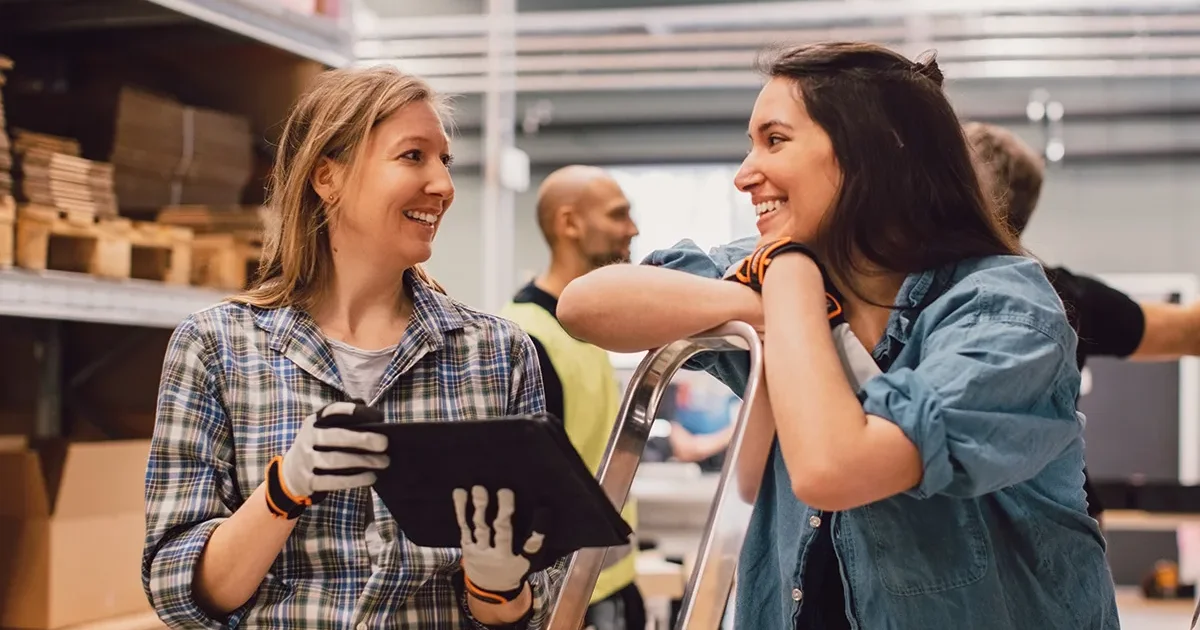
The proposed occupational health and safety amendment (psychological health) regulations in Victoria are an important milestone towards building a safer, healthy workplace culture. Prioritising employee safety and wellbeing should be your top priority as an employer. Assess your current workplace culture today and embrace these proposed regulations to create a healthy, safe, and positive workplace environment. Your employees deserve it, and your company will benefit in ways exceeding individual’s views for a long-term, thriving organisational culture.
Understanding Victoria's Proposed Occupational Health and Safety Amendment (Psychological Health) Regulations in Australia
Understanding Victoria's Proposed Occupational Health and Safety Amendment (Psychological Health) Regulations in Australia
Mental health is just as important as physical health. Unfortunately, it is often overlooked in the workplace in Australia. Employees may neglect to speak out about their mental health issues because they fear it may hinder their work opportunities. However, failing to recognize and address mental health issues is detrimental to the individual’s overall wellbeing. In response to this growing concern, the Victorian government has proposed a new amendment. The occupational health and safety amendment (psychological health) regulations have been created to support businesses to encourage mental wellbeing. These regulations will touch on workplace policies, and in this blog, we will break down who these regulations affect and what it means for your business.
First off, who will be directly impacted by these new regulations? Put simply, all Victorian employers in all industries are affected. The amendment will apply to both public and private employers and will affect organisations of all sizes and structures. The introduction of these new regulations will require organisations to implement policies relating to mental health in the workplace. Employers will need to provide adequate support to staff members and undertake risks involved with workers’ psychological health and wellbeing.

To ensure compliance with the amendment, it is also critical for organisations to engage with legal processes. This means auditing current occupational health and safety practice and policies to ensure that they incorporate issues related to psychological health in a way that is compliant with new regulations. Employers will also need to undergo regular reviews and updates to ensure their policies meet regulatory standards.
It is worth noting that the proposed regulations have a direct link to workplace bullying and harassment. Employers must ensure they have the proper procedures and support available if an employee raises a complaint of bullying and harassment in the workplace. Employers must also provide staff training and run campaigns to prevent workplace bullying and harassment.
Apart from compliance, there are practical benefits for organisations that go beyond legal compliance. Optimising mental health care can lead to higher productivity, increased employee retention, and business expansion. The introduction of mental health initiatives can also ensure that your company is seen as a safe work environment for staff members.
The proposed occupational health and safety amendment is an important step in addressing mental health in the workplace in Australia. The amendment will provide a framework for organisations to optimise mental health care explicitly. It is important for companies to accept the proposed regulations as part of their responsibility to produce a safer workplace. The bottom line is if you want a successful business, you need healthy employees. When employees feel that their well-being is prioritized, they are more motivated and committed to their work. So, take this opportunity to demonstrate your commitment to employee health and wellbeing in your organisation. Together we can make our workplaces better and safer for all of us.
Why Victoria's Proposed Occupational Health and Safety Amendment is a Game Changer for Employee Mental Health in Australia
Why Victoria's Proposed Occupational Health and Safety Amendment is a Game Changer for Employee Mental Health in Australia.
The importance of mental health in the workplace can no longer be downplayed. We've seen how a toxic work environment can affect an employee's mental, emotional, and even physical wellbeing. That's why Victoria's proposed occupational health and safety amendment (psychological health) regulations are a much-needed step in the right direction. They emphasise the need for employers to prioritise employee mental health, which can improve overall workplace wellbeing and even lead to increased productivity. In this blog, we'll take a closer look at Victoria's proposed amendment and discuss ongoing requirements, reporting, and who needs to manage the process.
Victoria's proposed occupational health and safety amendment (psychological health) regulations aim to provide a safe and healthy work environment for all employees, including their mental wellbeing in Australia. According to SafeWork Victoria, employers have a legal obligation to provide a safe work environment that doesn't negatively affect an employee's health or safety, supporting mental health as a priority. This includes their psychological health. This amendment is a game changer because it puts equal emphasis on both physical and emotional safety.
One of the key aspects of this amendment is the ongoing requirement to prioritise employee psychological health. This means that employers need to create and implement a system that manages, maintains, and reviews employees' psychological health at all times. This can be done through the establishment of policies and procedures, training for mental health, and supervision programs. Employers need to continually monitor employees' mental health, identify risks, and take proactive measures to minimise those risks, such as offering workplace stress leave options.
Additionally, employers must track and report on psychological health-related safety incidents that occur within the workplace. This can be in the form of a mental health-related injury, near miss, or any other psychological or social hazards that affect the employee's mental wellbeing. Reporting and analysing such incidents are essential in identifying hazards, controlling risks, and implementing controls that can prevent future incidents.

Mental health is integral to the overall wellbeing of employees. Victoria's proposed occupational health and safety amendment (psychological health) regulations emphasise the importance of prioritising employee mental health and safety in Australia, which is a significant step towards creating a healthier and safer work environment. Employers must implement a system that manages, maintains, and reviews employee psychological health continuously. Track and report on psychological health-related incidents that occur within the workplace and appoint a competent Person Conducting a Business or Undertaking (PCBU) to oversee the process. It is essential that employers maintain regular communication and consultation with employees to identify and mitigate mental health risks and hazards and to promote emotional wellbeing. While this may seem like a daunting task, with the right system, resources, and commitment, employers can create a healthier and safer work environment for all.
IT'S TIME TO START DREAMING
OUR DELTA DAWN.
By Gareth Andrews
“Delta Dawn, what’s that flower you have on
Could it be a faded rose from days gone by?”
Australia’s Helen Reddy had a hit with Delta Dawn in 1973 and the words and music have been rattling around in my recently deadened, decaying head. Somehow, I was uplifted, despite knowing that the actual song spirals downhill beyond these first sentences.
The words relate to our Delta times and the “faded roses” are the faces I see daily when I step outside, as permitted; pallid and empty faces of people losing grip with reality, their minds and hopes devastated by another winter of despair. The question we all ask is: “Will we ever see our Delta Dawn?” It’s a fair question.
Does this really mean all of us?
Lucinda Brogden, chair of the National Health Commission, believes so: “Five in five Australians are experiencing psychological distress, beginning at the mild end of anxiety and depression.”
I believed I was ready for it last year. I thought I’d done the hard yards, having experienced a serious bout of clinical depression 20 years earlier. I’d retrained my own mind and got plenty of help along the way professionally and privately. I’d helped others as well and I figured I had all the coping mechanisms I needed. Except for one thing: my total loss of freedom. The emotional, physical and mental loss of freedom immediately put me in the five out of five bracket.
What I did know was that there were positive steps I could take to help myself change. A great place to start is in the morning. It can be a dark place when the chips are down in your life and I have listened to many heart-wrenching stories on this score.
Get out of bed straight away, do some serious stretching and breathing exercises, have a shower, have a hearty breakfast and keep away from your technology; you are not ready for it.
You are ready instead to break bad habits. Make a fundamental change even though change is hard when you’re feeling like shit. Work closely with your partner and kids if necessary.
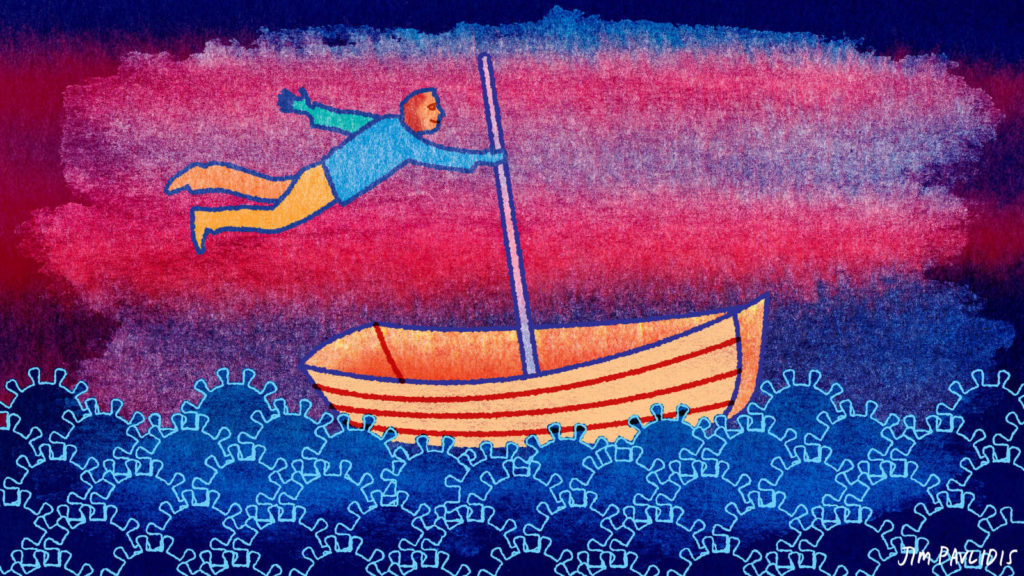
I started mentally engaging with myself; looking for a new tool to give me hope and open me up to the modern Delta Dawn. The letters almost spelled it out. Dream and dreaming would be my key words.
I’m not necessarily thinking of the dreams we associate with sleep, although a night of powerful dreams can enhance creativity and problem-solving. I’m thinking of the dreams we have which are more associated with daydreaming. Put yourself back in a place when you didn’t have a care in the world.
In the middle section of The Beatles’ classic, A Day in the Life, Paul McCartney sings, “Woke up, fell out of bed, dragged a comb across my head”, and finishes six lines later with, “And somebody spoke and I fell into a dream” before John Lennon drifts away.
Float into dreamtime. Think of Mary Poppins, Peter Pan, tilting at windmills, Dumbo the Flying Elephant, all taking us back to our childhood where we were taught to dream and reflect and believe and no one telling us “No”.
I love to dream about travel. I could almost go to Hell and back right now to get on the road again. I read Homer’s epic poem, The Odyssey, during lockdown(s) — I had the time! What a journey Odysseus had over 10 years trying to get home to Ithaca after the Trojan War. Monsters of various sorts, a visit to the afterlife, cannibals, alluring women (it was tough!) and Poseidon himself, god of the sea and earthquakes.
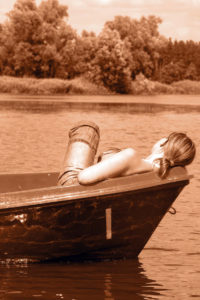
It might be hard to emulate the fantasy of Odysseus, let alone survive it. But what about the adventure! To me, travel has always been about the adventure of different countries, different cultures, different peoples. Capturing India in your nostrils. Sweating your way across the Andes and the Himalayas. Suffering on the Camino to achieve a spiritual awakening. Just by having the dream you’re ready to fly — literally.
I mentioned creativity a few lines back. How do we dream about rediscovering our creative selves? Imagine a summer’s day: you’re stripped down to the barest essentials, wandering down to a sparkling stream and setting up your painting tools, including easel and paper, brushes, chalk and rubbers. Isn’t it amazing how far we’ve come away from all of that in the modern age? We now know how much more preciously we must value our time.
Perhaps paint a picture about falling in love with life again. Just thinking about what that might look like gets the juices moving.
I can’t finish on dreamtime without mentioning the Aboriginal and Torres Strait Islanders of our nation. They used the Earth’s features, the landscapes, the animals and the rock formations to tell their stories, giving them special meaning for being conceived or born in the Country they inhabit. Maybe we should all start to give understanding to this belief.
In these totally disconnected times, we can dream about shedding our old skin like a snake. It’s called ecdysis. Another word for a stripper is ecdysiast!
While you dream, take time to dream about new challenges you want to take up in Delta Dawn. Remember that the old rose has already faded. It’s a brand new world and you will be able to participate in it as a refreshed and functioning human being. How exciting is that!
We started with a song. We’ll end with another, McCartney again. He wrote a song regarded as one of the greatest of all time, Yesterday. He described how he “dreamed” it. He awoke from the dream and immediately wrote down the music. The words came later. It’s a simple song which dives so deeply into the heart and mind. And apt for us as we dream of yesterday … and tomorrow.
READ THIS ARTICLE IN THE AGE NEWSPAPER
Author’s Bio
Gareth Andrews - Founder and Director of Life Again, a registered Not for Profit charity that educates and helps men to change and lead more fulfilling and purposeful lives. Through writing, public speaking, taking men to the Outback and working with Aboriginals, workshops and personally challenging men.
BARRACKING FOR THE LOSER.
By Gareth Andrews
Grand Final. It’s that time of the year when most ex-footballers of any age, era, competition or sex (I reckon Daisy Pearce knows more about footy than I’ve forgotten) are asked “who do you reckon will win?” We are supposed to know or have an opinion ( and if the enquirers don’t get the answer they want, “we” get told we wouldn’t know anything!) Unless one of the teams we follow is playing, probably most of us either don’t know, don’t care or both. Spin the coin or tell them to get the answer from Daisy, Tim, Brian and Co. At least they are paid to know.
Now here’s the rub for me. The “don’t care” factor should still kick in as neither Geelong nor Richmond is playing. The reality is I quite like both teams. I suspect many others feel the same. I might be getting soft but I don’t want either side to lose. How pathetic is that? It needs some explaining.
The difference between winning and losing a Grand Final has consequences for the rest of the Players’ lives. I’ve been lucky enough to play in two of them, the first in 1967 when my Geelong Cats were beaten by the Tigers (Richmond) in a game for the ages. With the lead changing hands numerous times in last quarter, the Tigers triumphed by 9 points. As a 20 year old I was gutted, but like all of us in our youth we feel our time will come again.The misery out on the ground after the game and down the highway to the Geelong Town Hall that night was slightly lessened by the fatalistic hope of my youth. It was not something that unburdened the older members of the team. They knew how hard Flags are to win. A cliche but absolutely on the button, as I eventually discovered.
It took exactly another seven years before I changed Clubs to Richmond and playing alongside many of my opponents from ‘67, I got to run around the MCG holding the Cup and sharing the triumph with a group of blokes who have become mates for life. I love my Geelong mates but there’s an extra depth when you win.
So Melbourne or the Bulldogs this week? There’s a rationale behind supporting The Demons this week as their last Flag was in 1964, the year before my career began. But I don’t get very sentimental about that as it seemed like they were winning every year through my formative days. They had their share so to speak, in the same way Hawthorn has in every decade since. Share it around a bit I say although I acknowledge the majority of fans are probably younger than me and feel a bit sorry for the Dees. Not me.
I can also mount a case against the Bullies but the aforementioned may not have heard of Ted Whitten. Who, some might say? Back when I played Whitten was in a battle with Ron Barassi for the unofficial title of Mr Football. They were superstars. It was my misfortune to play on Whitten a number of times in my early years and to be honest, I was scared witless! Gruff, tough and the epitome of somebody coming from the other side of town. I was a kid from Geelong. The Geelong College! He was Footscray. His pregame handshake was honed to perfection as was every part of his game. He fed on kids like me. He gouged fingers and crunched bones as he wished you well. I can’t see it happening today but it always made me wary of a Bulldog. Man or animal.
The players today seem a lot, um, nicer! Haircuts aside, most of them seem to be the sort of bloke you’d be happy to see your daughter go out with. That big tall blond ruckman/forward for the Dogs, Tim English, is unfairly handsome; ex Captain Easton Wood, I’m told, is a quietly spoken gentleman. And the Demons? You couldn’t dislike Max Gawn! Women just want to rap him in their arms. Kysaiah Pickett brings an Indigenous family history to the game with his boyish polish.
Of course we want to celebrate having two local teams in the Grand Final again after another year from hell. It’s been State versus State this Covid year and who ever wins is representative of us all. We’ve won the lockdown Premiership, we might as well win the real Flag. To do it in Perth, is another bonus! (My friend Tim Lane reckons Melbourne might lay off til next year and play it in front of their adoring fans at the ‘G. I suspect not.)
Two female Presidents as well. I still have split my loyalties. It’s a game for true romantics. In which case, I have to barrack for the loser. But as Gene Pitney sang in 1962, “..true love never runs smooth..” and I suspect the case will happen again this week. Pitneys’s track was “Only Love Can Break a Heart.” Sadly at the final siren there will be many broken hearts. Maybe a little part of mine.
Author’s Bio
Gareth Andrews - Founder and Director of Life Again, a registered Not for Profit charity that educates and helps men to change and lead more fulfilling and purposeful lives. Through writing, public speaking, taking men to the Outback and working with Aboriginals, workshops and personally challenging men.
RECOVERY.
By Gareth Andrews
Emerging recently from the Fifth Lockdown in Melbourne, an almost Olympian First in the Australian Championship of COVID lockdowns, I returned with a surreal feeling of emptiness, an emptiness which would take time to fill, if indeed it would ever be filled again in my lifetime. (I can hear my clock ticking.) And whatever it would be filled with was never going to be the same as “it” held leading up to March 2020.
I was not alone. The more opinions I sought, the more I realised their was a common feeling of people wearing down as this process dragged on. When I suggested to them that the word Recovery might be an appropriate “descriptor,” they unanimously agreed. It was universally playing on their minds.
As I write, I had been reading an interview Channel Nine’s Peter Overton had had with veteran newsreader Brian Henderson in February 2020. In the Herald Sun of August 6th, this was part of reporting of Henderson’s death from cancer at age 89. The interview was “about his kidney cancer diagnosis in 2020. It was his fifth cancer diagnosis after he had beaten melanoma, prostate, bowel and throat cancer,saying he would not be fighting the cancer again. …’there is not much point in having another operation, I don’t want to be cut open again,’ he said.”
It was Brian’s fifth time. We are now heading into our sixth time of being emotionally and physically “opened again” and the pain is becoming more acute.
This emptiness and the possibility it may never be filled again comes from a place of fear.
Fear that it will happen again. Fear of when it will happen again. Fear of personal freedoms being butchered. Fear of total disconnection from what is real. Fear of Big Brother taking over. Fear of trying to fill in time with soul-destroying thoughts.
When I refer to Recovery I am not talking about recovery from Clinical Depression and the total debilitating effect that causes. That make effect 15-20% of our community at any one time. No, I am thinking of a much broader community than that. I am referring to an insidious malaise that is literally affecting 100% of our community. Indeed I recently tuned into an online interview where Lucinda Brogden, Chair of the National Mental Health Commission, suggested that “5 in 5 Australians are experiencing psychological distress, beginning at the mild end of anxiety and depression.”
Covid affects everybody in Australia at the moment— indeed the World. Of course I can’t speak for everybody but the best I can do is be fair, be balanced, be rational, and as much as possible be non-political. There is no right or wrong in all of this but in a world where discussion has gone out the window and those who make the most noise stand off and face each other with totally opposite views. With anger. With ugly aggression.
So what does Recovery look like and how does it begin?
A good start is to get out of bed! Sounds stupid in its simplicity but I know it resonates across the board in tough times. The easiest thing is to bury under the blankets and hope the world goes away. Without a train to catch or an office meeting (an actual meeting) to go to, we can all hide. Sadly we can’t hide from ourselves. Your brain becomes your enemy. I experienced it at its worst when I was in deep depression twenty years ago: I’m not afraid to admit I’m still experiencing it today. Depression doesn’t grip me but life does. It’s called being human.
It’s not just a matter of rolling out of bed but also getting some physical movement. Whether it’s stretching the whole body on or off the bed or taking some very deep breaths, it’s remarkable how quickly the whole being can come into action. It’s like warming up your Maserati!!!! At least, think about it like that.
The key part of this whole routine is development of Discipline in your life. Your first step out of bed is like all journeys; it sets the tone of the day.
Of course, it’s important to have a good healthy breakfast. That’s a given. But in the context of Recovery and the necessity of paying attention to mind and body, I am exploring the power of overcoming the belting that the mind has taken over the last year and a half.
So before or after breakfast, do what you are able to do. Go for a walk, get a coffee, more deep breaths, speak to neighbours passing by (despite the fact that the speech can become a muffled grunt behind the mask) and look up in the sky and notice everything is still in it right place. And when you are speaking, try to avoid the C and V words. Covid and Vaccines need a break.
Resting Recovery might seem to be in conflict with the aforementioned getting out of bed comments, but it’s not. For some of us who have already experienced almost 200 days in lockdown—welcome aboard Melburnians—
Author’s Bio
Gareth Andrews - Founder and Director of Life Again, a registered Not for Profit charity that educates and helps men to change and lead more fulfilling and purposeful lives. Through writing, public speaking, taking men to the Outback and working with Aboriginals, workshops and personally challenging men.
